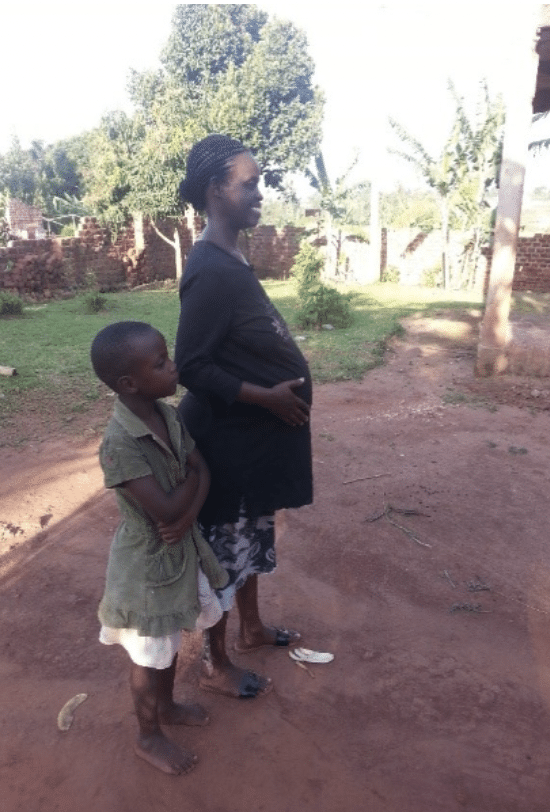Esther Namwanje is a 43-yr-old married mother of three children who lives in the village of Kikaabya in the Rakai district, Masaka, Uganda . She endured an obstetric fistula while giving birth to her first set of twins.
Esther was 16 years old when she unexpectedly lost her mother. With nowhere to live and nowhere to go she dropped out of school. She was alone. “Life had become a living hell and I thought about taking my own life”. Her grandmother arranged for her to marry the village chief who already had three wives. Esther says that she cried from the time she was married off until the time she decided to run away several years later.
A few months into the “marriage” Esther became pregnant. Esther was angry with her condition considering she never consented to the marriage and viewed the pregnancy as a product of rape. Due to her rebellion of the marriage, Esther was neglected during her pregnancy and didn’t receive prenatal care.

Esther’s husband felt that if she wanted to eat, she needed to learn how to garden. “If you cannot plant your own food, who do you think is going to provide food for you on a daily basis, do you think you are a visitor!” he said. It was also established that her co-wives did not have time to administer to Esther’s needs; instead, Esther had to help senior co-wives with chores and taking care of their children since she was younger and had no children yet.
One morning while on her way to the garden, Esther felt weak, and a severe pain cut through her back and lower abdomen. Unable to walk or stand she fell to the ground. After about 30 minutes she gained enough energy to continue her journey to the garden, her strength coming from a place of fear, that if she didn’t tend to the garden, she’d have to face the wrath of her “husband”.
Esther was unaware that she was carrying twins. Labor pains persisted when she was in the garden and luckily enough, an elderly lady, working in a neighboring garden, heard Esther groaning in pain and came to her rescue.
Unfortunately, one baby died at birth and the other survived, but both mother and the baby were in very critical condition. She was taken to the hospital and learned that she had experienced an obstetric fistula. When her husband heard what happened, he demanded that she be discharged from the hospital and that he would find her better medication from more qualified health workers. Esther begged not to be discharged, but it was all in vain because there was no one to pay her bill. Instead of taking her to another health facility, the “husband” took her home. There she received only herbs from the senior co-wives.
Some years later, still with an unrepaired fistula, Esther became pregnant again. She was so very disappointed and depressed whenever she thought of her condition. Finally, she ran away from her house and went to a friend’s home in another village. She was determined to find a solution for her condition. Her friend took her to Kitovu Hospital where they treat women needing fistula repair. She delivered twins again and this time she was advised to return to the hospital within a month for fistula repair.
While at Kitovu, Mother Winnie, one of the nurses, referred her to the piglet project and she joined in 2016. Esther was so happy and swore never to go back to her “husband” nor would she let her grandmother know of her whereabouts.
She was so courageous that she became focused and innovative. She reared the pig at a friend’s place and at its first litter, it produced 12 piglets, but one died at birth. After giving her friends two piglets, she sold 8 of them; five female and three boars.
Esther raised a total sum of UGX 440,000 ($119 USD) from the pig sales. She used the income to rent a room and moved out of her friend’s house. Esther became an independent single mother of 3 children. At the place she was renting, she got permission to construct a pig pen using the remaining funds from pigs’ sales. The pig had another litter. Esther sold the pigs and she used the income to start up a small business of selling soft drinks: sodas, juices and bottled water. She bought a used deep freeze to preserve and cool the drinks.
Esther is happy; she has a new husband and they are expecting their first child together. She wants to encourage women with a fistula to go for treatment because it is curable.
“I am grateful to Microfinancing Partners in Africa for helping us, had it not been for Microfinancing Partners in Africa, where would I be? Thank you so much my dear friends of Microfinancing Partners in Africa. God bless you abundantly.”

